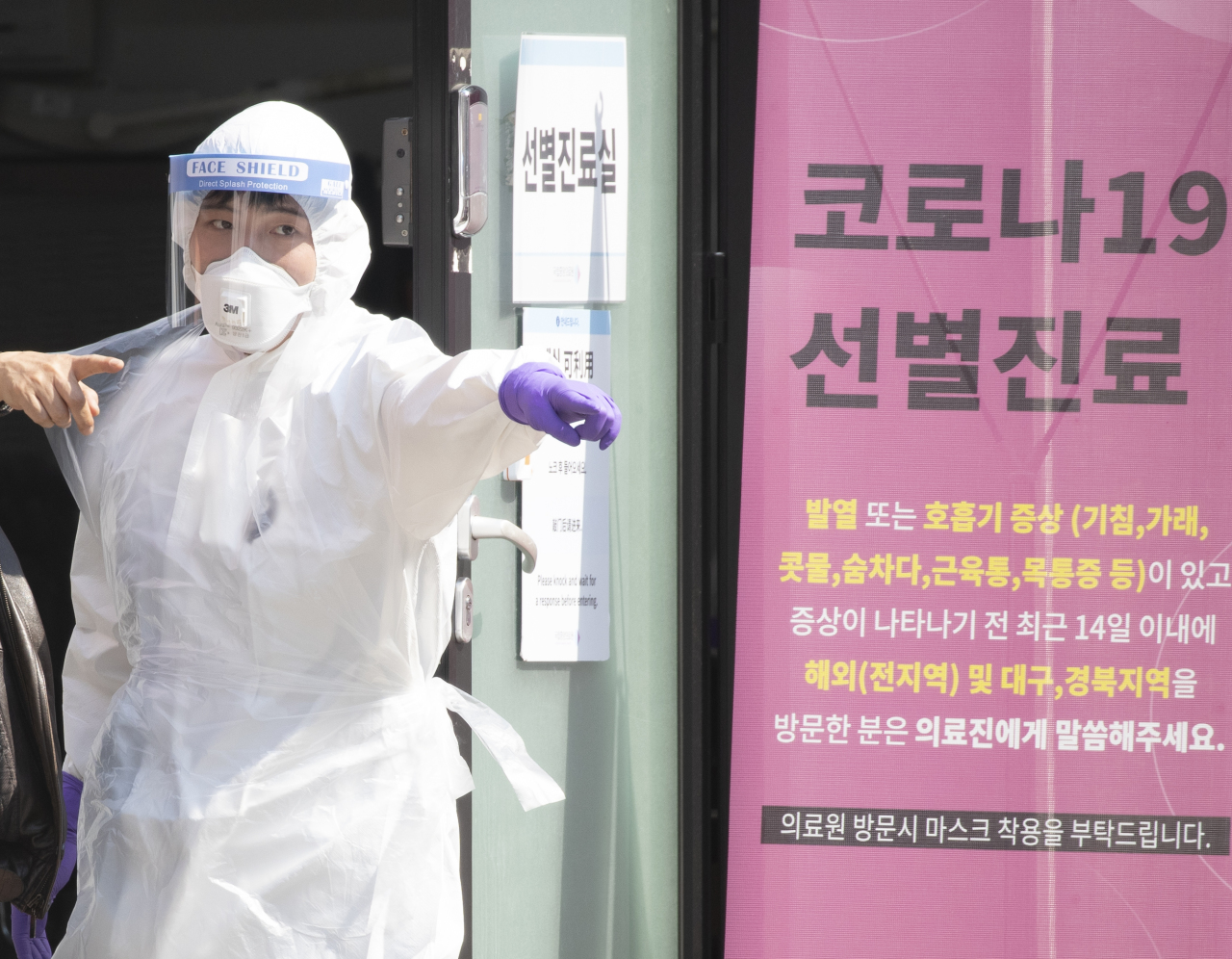S. Korea far from stemming coronavirus: KCDC
No confirmed virus cases tied to parliamentary elections, health authorities say
By Kim Bo-gyungPublished : April 28, 2020 - 17:21

South Korea’s health officials said the country was still far from completely stemming the novel coronavirus and that the upcoming long weekend will be another challenge in keeping the virus curve as flat as it is now.
More than 2 in every 5 transmissions of the coronavirus could occur while the original patient is in the early stages of the infection, officials said Tuesday.
“Besides asymptomatic cases, COVID-19 is highly infectious at least two days prior to showing symptoms, and transmissions start to happen even before symptoms emerge,” said KCDC Deputy Director Kwon Joon-wook, during a daily press briefing on COVID-19.
“We understand that over 40 percent of transmissions can occur even before patients start to display symptoms.”
Health authorities have urged the public to adhere to the relaxed virus prevention guidelines, as the country is to begin a long weekend amid a slowdown in the number of daily infections.
On Tuesday, Korea added 14 new cases of the novel coronavirus from the previous day, pushing the tally to 10,752, according to the Korea Centers for Disease Control and Prevention.
Korea’s daily infection tally stood at around 10 for a tenth day in a row.
One more patient succumbed to the virus, putting the number of people killed from the disease at 244, according to the KCDC.
The country has not yet reported a coronavirus patient in association with the April 15 nationwide parliamentary elections that were held with in-person voting.
“The maximum incubation period of the virus is 14 days ... so it is difficult for me to say for sure, but, for now, we have not yet come across reports of the virus or cluster infections with regard to the general elections,” Kwon said.
“Final results will be released tomorrow, and I think we will be able to remember it as a successful case of preventing the virus in our daily lives.”
He attributed the preliminary success to relevant government agencies’ concerted efforts and voters’ close proximity to polling centers.
Health officials also credited medical staff on the front lines combating the virus along with the country’s testing capability for the curve, which has flattened for now.
A total of 608,514 people have been tested for the virus, of which 588,559 tested negative and with results of 9,203 people pending as of Tuesday, according to the KCDC.
The number of people released from isolation after making a full recovery totaled 8,854, up 90 from a day earlier, putting the recovery rate at 82.4 percent.
Responding to reports out of Japan that polymerase chain reaction tests shipped from Korea would have to undergo a separate verification process, a senior official with the Health Ministry, Yoon Tae-ho said the Korean government does not have imminent plans to send such equipment to Japan.
“Our basic stance is to offer support after considering recipient countries’ situation and domestic supply capacity. … For now, we are not proceeding to aid Japan with COVID-19 test kits,” Yoon said.
Korea’s Foreign Ministry launched a pangovernmental task force to manage requests from other countries seeking preventative gear made in Korea.
Meanwhile, imported cases made up the bulk of new infections, totaling 12, of which three were confirmed at airport checkpoints, with four in Seoul, three in Gyeonggi Province and two in Daegu, according to the KCDC.
Among the new patients, one each also came from Incheon and North Gyeongsang Province, it added.
By Kim Bo-gyung (lisakim425@heraldcorp.com)








![[KH Explains] How should Korea adjust its trade defenses against Chinese EVs?](http://res.heraldm.com/phpwas/restmb_idxmake.php?idx=644&simg=/content/image/2024/04/15/20240415050562_0.jpg&u=20240415144419)










![[Today’s K-pop] Stray Kids to return soon: report](http://res.heraldm.com/phpwas/restmb_idxmake.php?idx=642&simg=/content/image/2024/04/16/20240416050713_0.jpg&u=)